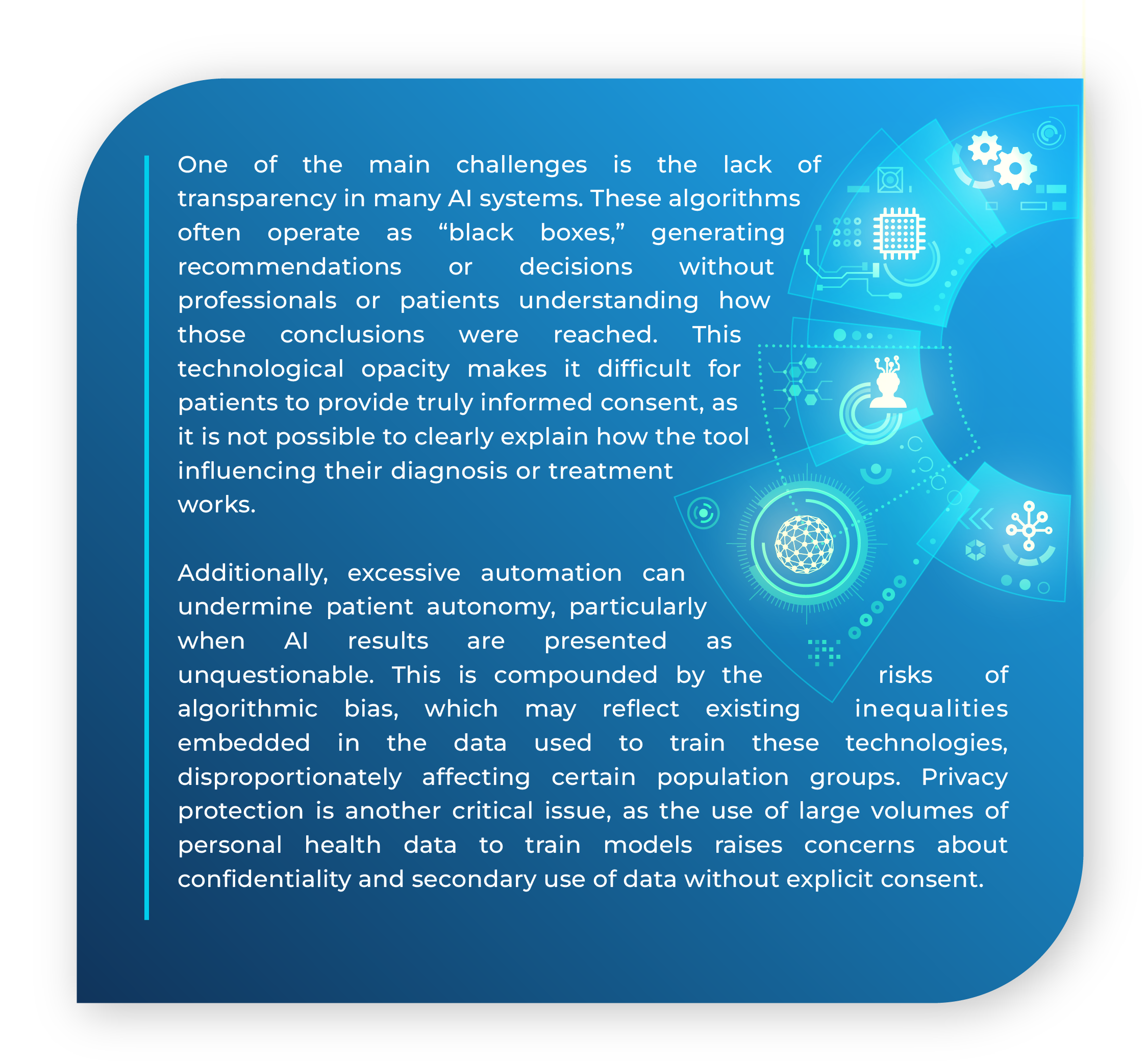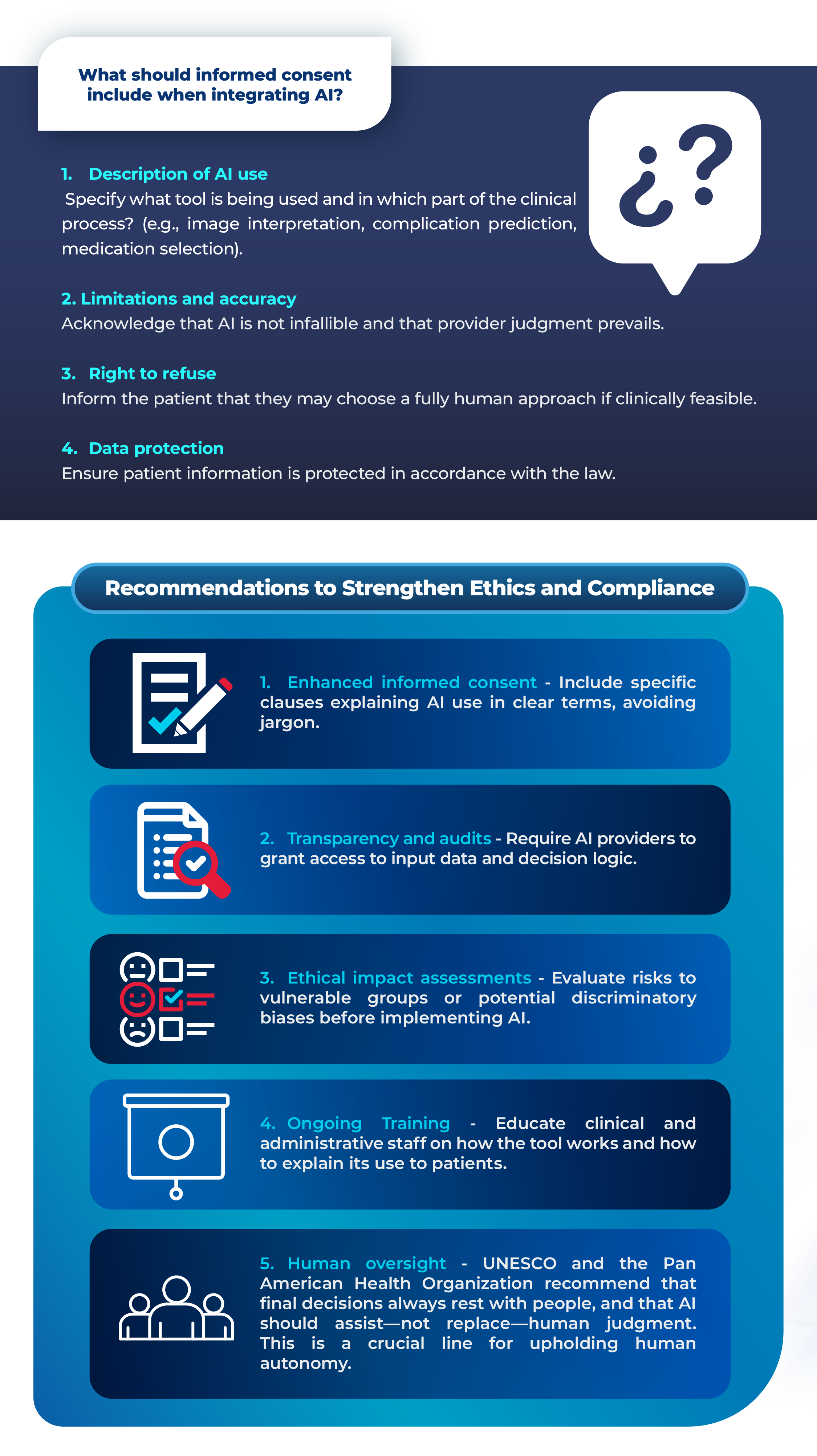This post is also available in:
 Español (Spanish)
Español (Spanish)
Salvador F. Rovira Rodríguez, Esq. LLM, CEO of CredeMtia
Discussions around artificial intelligence (AI) in healthcare are no longer futuristic—they are part of our everyday reality. From systems that analyze medical images to algorithms that optimize appointment management, AI is present at multiple levels of clinical care. Yet as these technologies become more embedded, a fundamental question arises: are we adequately protecting patient rights in the face of machine-assisted decision-making?
The advancement of AI in healthcare and public administration is transforming how diseases are diagnosed, data is managed, and clinical or administrative decisions are made. However, this technological innovation brings serious ethical challenges, especially concerning informed consent, a cornerstone of respecting patient autonomy and dignity.

To address these challenges, it is essential to require that AI systems be auditable and capable of producing understandable explanations for both users and professionals. Informed consent processes must be redesigned using clear language, avoiding technical jargon, and supported by educational materials that facilitate patient understanding. Institutions should implement ethical impact assessments to evaluate risks before integrating AI into their services, fostering a culture of accountability. Likewise, digital education for both professionals and patients is vital to support informed and conscious decision-making in increasingly automated environments.
 Informed consent must not become an empty formality in the digital age. On the contrary, it should serve as an active tool that ensures respect for fundamental rights, equity in access to technology, and trust in the systems society adopts. Artificial intelligence can significantly contribute to human well-being, but its implementation must be guided by strong ethical principles centered on people.
Informed consent must not become an empty formality in the digital age. On the contrary, it should serve as an active tool that ensures respect for fundamental rights, equity in access to technology, and trust in the systems society adopts. Artificial intelligence can significantly contribute to human well-being, but its implementation must be guided by strong ethical principles centered on people.
AI can enhance clinical efficiency, reduce errors, and personalize care. However, its responsible use demands transparency, ethics, and regulatory compliance. Including the patient in this process—through clear informed consent—is a sign of respect and a protective tool for the provider. In Puerto Rico, we already have medical AI initiatives and developing legislation that requires transparency, regulation, and data protection. But it is within the informed consent process that this translates into tangible respect for the patient.
At Provider Network Solutions, we encourage you to stay informed, update your consent protocols, and view AI as an ally—never as a substitute for human clinical judgment.
This post is also available in:
 Español (Spanish)
Español (Spanish)








